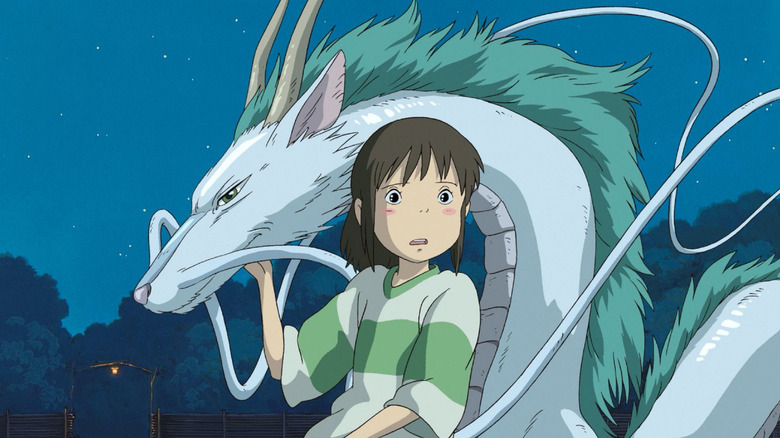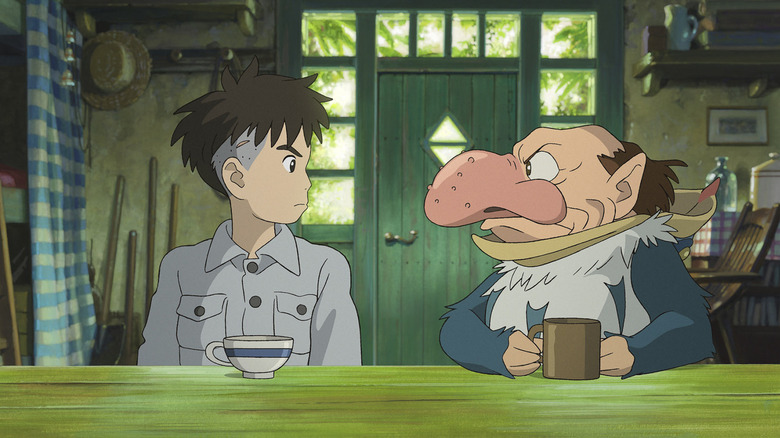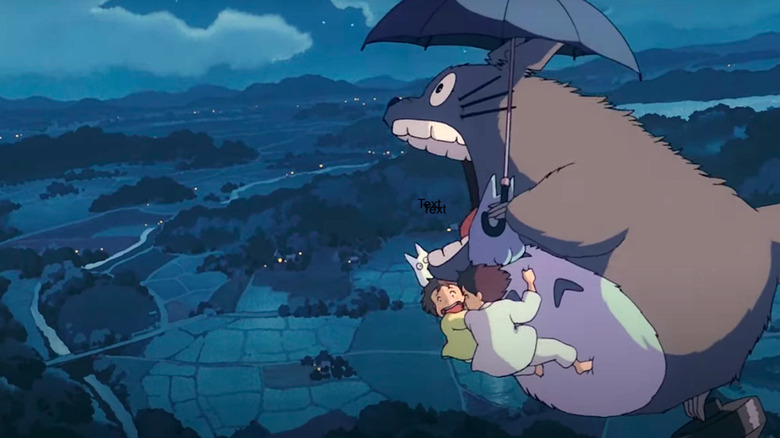Why The Greatest Animation Studio In The World Faces An Uncertain Future
Hayao Miyazaki just won't stop. The animation maestro has retired then unretired so many times it is just silly now, with his latest movie "The Boy and the Heron" being released in Japan with no trailers and being billed as his last goodbye — until it was revealed he was already throwing around ideas for his next project. "He's thinking about this next project every day, and I can't stop him — in fact, I've given up," studio co-founder and long-time producer Toshio Suzuki recently said in an interview with French outlet Liberation.
But while the idea of more Miyazaki is exciting, what's somewhat troubling is the future Studio Ghibli is headed toward. After all, this is the greatest animation studio in the world, responsible for all-time classics like "Kiki's Delivery Service" (which ended up on our list of 100 best movies ever) and "Princess Kaguya," and which gifted us Totoro and tanuki testicle transformations.
It is also a celebrated animation studio with a nebulous future after Miyazaki actually retires, and even more so after he passes away. News recently broke that Studio Ghibli was being sold as a subsidiary to Nippon TV, the Japanese broadcasting giant behind anime such as "Detective Conan," and "Anpanman," as well as "Monster" and the original "Berserk."
According to Suzuki, the sale won't impact Miyazaki's future work (which he says will likely go on until the 82-year-old filmmaker turns 90) or anything Ghibli does, but there is a caveat. "Nippon TV won't come and tell us anything," the producer said. "The problem arises more when we are gone. What will happen then, I do not know. It will be up to those who will be there at that time to think about it."
Fall of the House of Ghibli
Making matters worse, Miyazaki has refused to properly name a successor to take over after he's gone. While the obvious choice (for better or worse) was Miyazaki's own son, Goro Miyazaki, who has directed movies for the studio before, he wasn't named. "If Goro had become the boss, Ghibli would be a Miyazaki family business," Suzuki said regarding this decision. "It was the right decision to avoid this situation, because Ghibli is broader than that, has a bigger scope than Miyazaki and I thought."
Still, the problem remains that there is no apparent heir, which Suzuki told Liberation was his main concern. "Good or bad, the reality is that Studio Ghibli is first and foremost Miyazaki's genius creativity. We only have to wait for another immense talent to appear to succeed him. For the moment, there is none, anywhere in Japan."
The future is uncertain
Of course, this is in no small part the fault of the studio itself. Every director Studio Ghibli has trained to possibly take the mantle from Miyazaki after his retirement has left the studio one way or another, from Yoshifumi Kondō dying tragically in 1998 (OK, that wasn't their fault), to Mamoru Hosoda leaving the studio after creative differences to forge a successful directorial career elsewhere. The closest thing Miyazaki has to a successor is Studio Ponoc, which was founded by Ghibli producer Yoshiaki Nishimura, and staffed by over a hundred Ghibli employees.
What happens to Studio Ghibli after Miyazaki dies? It's hard to say, but it is unlikely the studio will remain what it is today, let alone what it was in its prime. Nippon TV is not exactly known for its original productions, at least in anime, and it was that focus on original ideas that initially made Studio Ghibli stand out in the anime industry. Today, most anime are adaptations of popular manga and graphic novels, with very few auteurs capable of creating wholly original material. Filmmakers like Mamoru Hosoda and Makoto Shinkai are among them, which is partially why they are often described as Miyazaki's successors, but crucially, there is no Hosoda or Shinkai actually working at Ghibli. Either Nippon TV starts bringing in established directors like them to produce new movies, or it is possible Ghibli will become just a vessel for whatever recognizable IP Nippon TV wants to push. That, of course, is the worse-case scenario (next to the studio outright closing), but hopefully there's still time for Miyazaki and Suzuki to think about the next generation of Ghibli animators.


